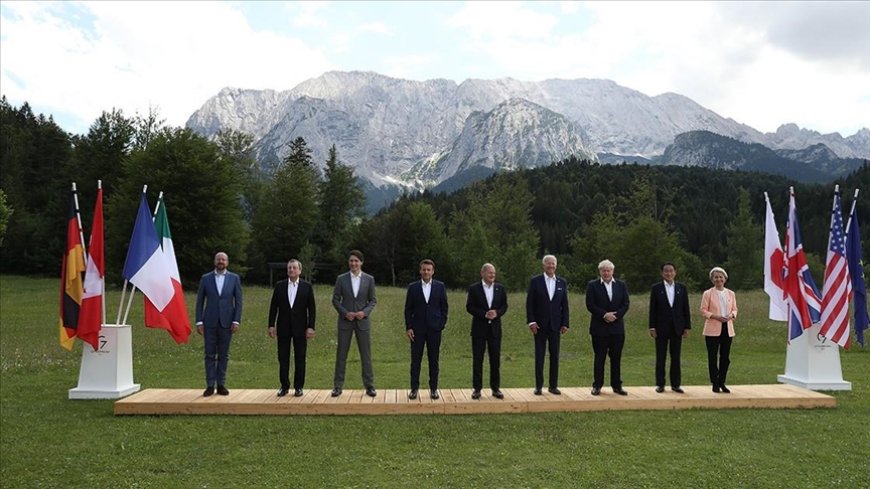Oxfam Report: G7 Military Spending Could End Global Hunger and Solve Global South Debt Crisis

With an allocation of just 2.9 percent ($35.7 billion) of their annual military spending, the Group of Seven (G7) countries could potentially eradicate world hunger and resolve the debt crisis in the Global South, according to a new Oxfam analysis. This finding comes as the G7 Summit convenes in Borgo Egnazia, Italy.
- Funding Needs: Eradicating world hunger requires $31.7 billion more from donors, while the G7’s fair share of debt relief for the world's poorest countries is $4 billion, totaling $35.7 billion.
- Military vs. Humanitarian Spending: The G7's combined annual military spending in 2023 was $1.2 trillion. Redirecting a fraction of this amount could have a significant humanitarian impact.
Max Lawson, Oxfam International’s Head of Inequality Policy, emphasized the disparity: “Governments are quick to fund wars but claim to be broke when it comes to stopping starvation. A small financial commitment could drastically change lives, ensuring no one goes to bed hungry and allowing countries in the Global South to invest in public services instead of debt repayments.”
Rising Hunger and Malnutrition
Hunger is escalating in regions such as Somalia, Guatemala, Yemen, and Kenya, with over 281 million people facing severe hunger and malnutrition. In Gaza, the crisis is exacerbated by Israel’s ongoing military actions and blockade, leading to extreme suffering and starvation.
Oxfam urges the G7 to demand that Israel adhere to the International Court of Justice (ICJ) ruling to cease military operations in Rafah and allow humanitarian aid into Gaza. The G7 should also ensure that their economic policies do not support potential genocide in Gaza. International humanitarian law mandates states to take all measures, including halting arms exports that could be used in war crimes or genocide.
Debt and Financial Obligations
The G7 countries owe low- and middle-income countries $15 trillion in unpaid aid and climate action funding. Despite this, they demand $291 million daily in debt repayments and interest from these countries. Pope Francis has advocated for debt cancellation, deeming it a matter of justice.
Low- and middle-income countries are spending nearly a third of their budgets on debt servicing, equivalent to their expenditure on education, healthcare, and social protection combined.
Call for Fair Taxation
The G7 summit coincides with Brazil's proposal to tax the super-rich globally. With the inequality gap widening, there is increased pressure on world leaders to implement fairer taxation on wealthy individuals and corporations. Oxfam estimates that higher taxes on millionaires and billionaires in G7 countries could generate over $1 trillion annually.
The G7, home to 1,211 billionaires with a combined wealth of $8 trillion, has seen this wealth grow by 74 percent in the past decade.
Max Lawson calls for a commitment to global tax reforms: “Families struggle to afford food while our tax systems enrich the wealthy. The G7 must support efforts, led by the Brazilian G20 Presidency, to increase taxes on billionaires and the super-rich.”
Notes to Editors
- Military Spending Data: According to SIPRI, the G7's combined annual military spending in 2023 was $1.2 trillion, with the US accounting for $916 billion.
- Global Hunger Statistics: Last year, one in ten people worldwide lacked sufficient food, with 281.6 million people experiencing extreme food insecurity.
The Oxfam report underscores the potential for significant positive impact through the reallocation of a small fraction of military spending, advocating for the G7 to take decisive action to address global hunger and debt crises.













































